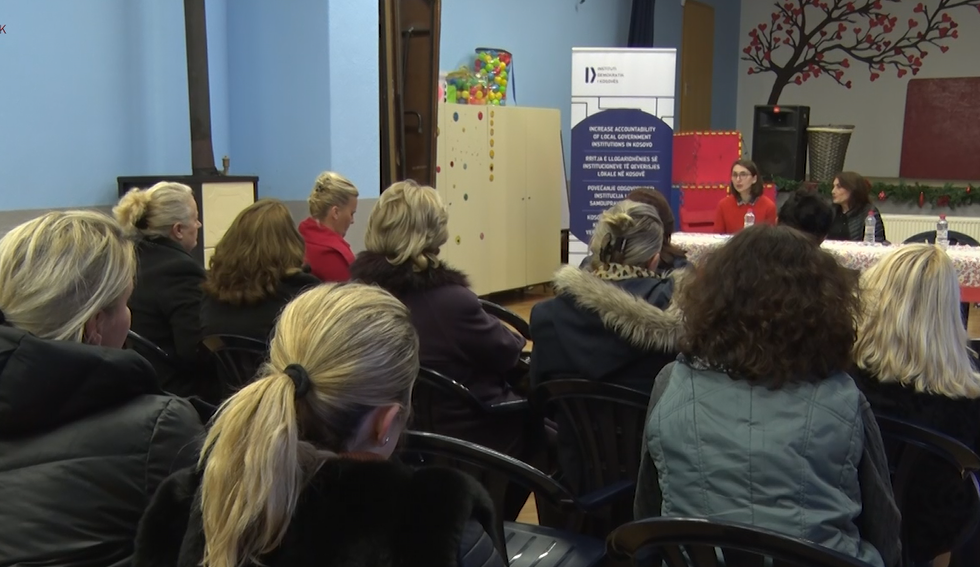


Women continue to face basic problems that condition their equal participation in the labor market and public life.
In particular, those living in villages face the lack of basic health services, lack of nurseries that aggravate daily life and hinder their being active in the labor market or engaging in public affairs.
Women from the villages of Milloshevë and Lajthishtë, Municipality of Obiliq, also face these problems as so they said during the two separate meetings organized by the Kosovo Democratic Institute (KDI) with municipal representatives in where they demanded their resolution and advancement of the position of women in this region.
Since only the Main Family Medicine Center, built recently in Milloshevë, does not meet the needs and demands of the citizens, the women present at these meetings considered it necessary to extend the working hours of this center.
The same problems concerns gynecologist services in this municipality. Although the gynecologist’s working time is 8 hours a day, his/her presence in the center is only 3 hours and for other services outside of this timetable women need to go to Pristina.
Lack of nursing is another challenge that women in this municipality evaluate as a tool that would facilitate their employment and advancement. Since in Obiliq municipality there is only one public kindergarten, the construction of a new kindergarten or capacity building for the admission of more children to the existing bridge would greatly contribute to the well-being of women as a whole but also to the children in particular, said the women in these meetings.
Meanwhile, the director of the Finance Directorate in Obiliq Municipality, Zarife Behluli, who was present in the meetings, disclosed municipal plans that include the completion of infrastructure in this municipality during 2019. According to her there will be room for investments that will improve the wellbeing of citizens in general but of women in particular, by providing them with support in activities and capacity building in employment.